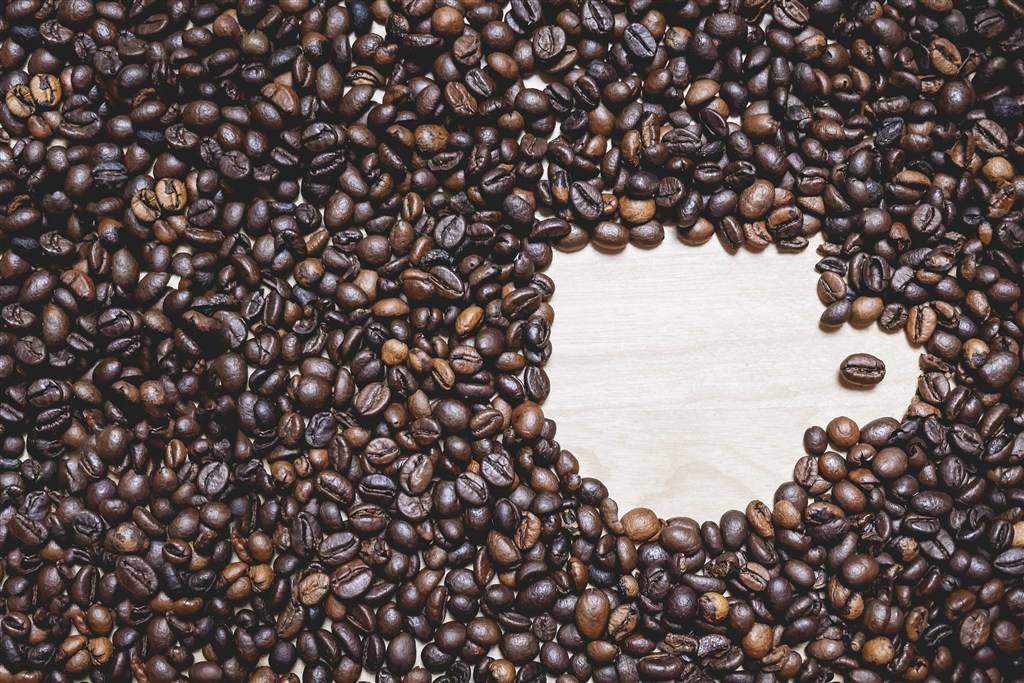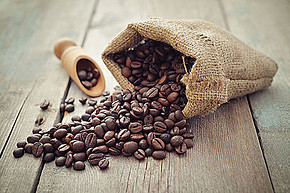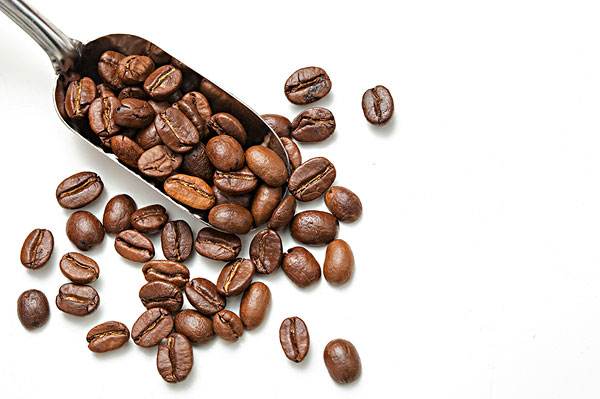The secret of the mellow taste of Blue Mountain coffee
Pay attention to coffee reviews (Weixin Official Accounts vdailycom ) and find a beautiful cafe to open your own shop
Blue Mountain coffee trees are all grown on steep slopes, which is the secret of the mellow taste of Blue Mountain coffee. Picking coffee is a difficult physical task that only local women in Jamaica can undertake. At the same time, picking is a work that requires patience and care, which directly determines the quality of coffee, so women workers must choose coffee beans that are just ripe. Coffee beans must be picked and shelled the same day, fermented for half a day, cleaned and sorted. The next step is to dry, spread the treated coffee beans on the concrete floor or thick blanket to receive sunlight, and after drying to only 12% to 14% moisture, they can be transferred to a special storage place for coffee beans. Wait until drinking time to take out baking, processing into powder. All of these steps are strictly controlled, and any mistake in any one of them will destroy the taste and taste of coffee.
Coffee has a long history in Jamaica, dating back to 1717, when King Louis XV of France was a coffee enthusiast. He not only planted coffee trees in his garden, but also ordered people to plant a large number of coffee trees in Jamaica. Coffee was grown on a large scale in Jamaica in the mid-1920s when Sir Nicholas Lowes, British Governor-General in Jamaica, introduced Arabica seeds from Martinique, France's overseas region, to Britain and began coffee cultivation in St Andrew's as a pilot. Today's St. Andrew's region has developed into a famous Blue Mountain coffee producing area, which is called "the three major producing areas of Blue Mountain coffee in Jamaica" together with Portland producing area and St. Thomas producing area. Until 1932, Jamaica's annual coffee production had reached more than 15,000 tons, reaching the peak of the world.
In 1950, the Jamaica government set up the "Jamaica Coffee Industry Council" to better promote local coffee to the world. In order to maintain the excellent quality of raw coffee and roasted coffee exported from the local area, it also issued a unique official seal for its coffee production, becoming the most authoritative national coffee organization in the world. However, today only a handful of six logos can carry the true name of Blue Mountain Coffee. They are Memphis Riverbank Coffee Factory, Blue Mountain Coffee Cooperative Factory, Portland Blue Mountain Coffee Cooperative Factory, Coffee Industry Association, Coffee Industry Association and Blue Li.

Due to the influence of various factors, Jamaica's coffee industry fell into various difficulties. The hurricane hit coffee production sharply, labor costs continued to rise, the rugged terrain could not be replaced by machinery, and many coffee growers were poorly managed... At this time, the Japanese seized the opportunity. After injecting huge capital, Jamaica's coffee industry came back to life. Japan, of course, has benefited from this, and they have thus been given priority in buying Blue Mountain coffee, and now they control 90% of Blue Mountain coffee. As a result, only 10 percent of Blue Mountain coffee circulates in the rest of the world, and Blue Mountain coffee becomes even rarer. But blue mountain coffee is a hot seller, regardless of its price.
Blue Mountain Coffee is famous in the world, why does Blue Mountain Coffee taste so pure?
Jamaica is a small country, northeast of Kingston is the Blue Mountains. Most of the peaks of Blue Mountain are more than 1800 meters above sea level, and the famous Blue Mountain Coffee grows in this mountain area. Coffee in Jamaica was introduced in 1723 by a French naval officer from a neighbouring region, although cultivation of the crop did not initially attract sufficient weight. Blue Mountain coffee emerged in 1932 following an important decision by Jamaica authorities to encourage coffee cultivation to reduce dependence on sugar exports.
Blue Mountain Coffee's unique flavor is related to Blue Mountain's geographical location and climatic conditions. Generally speaking, south of the Tropic of Cancer and north of the Tropic of Cancer, this area is suitable for growing coffee, known as the "coffee belt". Jamaica is just south of the Tropic of Cancer.
Blue Mountain steep, fresh air, no pollution, rainy all year round, large temperature difference between day and night, has a unique fertile new volcanic soil. Most importantly, every afternoon, clouds cover the whole mountain area, which not only provides natural shade for coffee trees, but also brings abundant water vapor. Superior geographical and climatic conditions, so that the taste and aroma of Blue Mountain coffee outstanding, to be proud of other similar.
In addition to outstanding natural conditions, Blue Mountain coffee from planting, picking, to cleaning, shelling, roasting, etc., each process is very particular, there are strict standards. For example, there are clear regulations on what organic fertilizer needs to be used in which growing period, picking and many subsequent procedures are completed by hand, most of which are female workers. Jamaica is one of the last countries to ship coffee in traditional barrel packaging in order to guarantee the quality of coffee during transportation.
At a Blue Mountain coffee processing plant dedicated to tourists, the narrator revealed to reporters the "secret" of why Blue Mountain coffee tastes pure: their coffee trees all grow on rugged hillsides, and the picking process is very difficult, and non-local skilled female workers are simply unable to do it.
It's important to pick coffee beans that are ripe, as immature or overripe can affect the quality of coffee. The beans are shelled the same day and allowed to ferment for 12-18 hours. Coffee beans are then washed and sifted. After that, the process is drying, which must be carried out on concrete floor or thick blanket until the humidity of coffee beans drops to 12%-14%. Then they are stored in special silos. When needed, it is taken out and roasted, and then ground into powder. These procedures must be strictly controlled, otherwise, the quality of coffee will be affected.
Blue Mountain Coffee can maintain today's top status, but also with the local government's policy of limiting production and quality. Jamaica does not mass-produce Blue Mountain coffee regardless of quality because it is famous. Instead, quality was given priority, and it was better to sacrifice production and protect the gold-lettered signboard of Blue Mountain Coffee.
Brazil, the world's largest coffee producer, produces 30 million bags (60 kilograms each) of coffee a year, while Jamaica produces just over 40, 000 bags a year. The difference in output can be seen here.
Blue Mountain coffee beans are divided into several types according to quality. The top blue mountain coffee beans generally do not enter the circulation market, most of which are reserved by the royal family and the rich, while the listed blue mountain coffee beans are the "Blue Mountain" brand coffee beans guaranteed by the Jamaica government. Statistics from the International Coffee Organization website show that in 2003- 04, Jamaica produced 43,000 bags of coffee, of which 24,000 were exported. Nearly 90% of exports go to Japan and the rest to Europe and the United States.
Due to limited production and small export volume, Blue Mountain Coffee has been in short supply on the international market. As the saying goes, rare is expensive, and Blue Mountain coffee is expensive even in its country of origin. A 4-ounce (114-gram) bag of Blue Mountain coffee sells for nearly $7 in the Jamaica market.
In recent years, various coffee shops have sprung up in China, and top-grade Blue Mountain Coffee has naturally become the target of people, especially young people. For a moment, it seemed that only when you tasted Blue Mountain coffee could you really drink coffee. And if you don't sell Blue Mountain coffee, you're not a real coffee shop. Domestic "Blue Mountain Coffee" price per cup from more than 30 yuan to more than 100 yuan, really expensive.
Of course, if it is genuine, the above price is also in line with the expensive status of Blue Mountain Coffee. However, Jamaica Blue Mountain coffee production and exports are limited, China does not import a share of Blue Mountain coffee directly from Jamaica, and the International Coffee Organization does not have any records of Blue Mountain coffee beans exported to China.
Important Notice :
前街咖啡 FrontStreet Coffee has moved to new addredd:
FrontStreet Coffee Address: 315,Donghua East Road,GuangZhou
Tel:020 38364473
- Prev

Introduction of Jamaican Blue Mountain Coffee beans at Marvis Bank Manor
Following Cafe Review (Wechat official account vdailycom) found that Beautiful Cafe opened a small shop of its own today to bring you a Jamaican Blue Mountain Coffee NO1 from Mavis Bank Manor. Raw bean information producing country: North America, Jamaica, Jamaica, Origin: Marvis Bank (Mavis Bank) Variety: Typical production altitude: 120
- Next

Kasha; Louise BABY Summer Coffee Bean Introduction
Weixin Official Accounts vdailycom found a beautiful cafe to open its own shop, Panama Casa Ruiz Cooperative, founded in 1979, is one of the most famous cooperatives in the Boquez District of Baru Volcano. Its headquarters is located in the valley of the skirt belt of Baru Volcano. The family has been inherited for 3 generations and has more than 300 small family farmers.
Related
- Detailed explanation of Jadeite planting Land in Panamanian Jadeite Manor introduction to the grading system of Jadeite competitive bidding, Red bid, Green bid and Rose Summer
- Story of Coffee planting in Brenka region of Costa Rica Stonehenge Manor anaerobic heavy honey treatment of flavor mouth
- What's on the barrel of Blue Mountain Coffee beans?
- Can American coffee also pull flowers? How to use hot American style to pull out a good-looking pattern?
- Can you make a cold extract with coffee beans? What is the right proportion for cold-extracted coffee formula?
- Indonesian PWN Gold Mandrine Coffee Origin Features Flavor How to Chong? Mandolin coffee is American.
- A brief introduction to the flavor characteristics of Brazilian yellow bourbon coffee beans
- What is the effect of different water quality on the flavor of cold-extracted coffee? What kind of water is best for brewing coffee?
- Why do you think of Rose Summer whenever you mention Panamanian coffee?
- Introduction to the characteristics of authentic blue mountain coffee bean producing areas? What is the CIB Coffee Authority in Jamaica?

